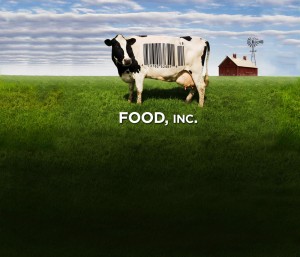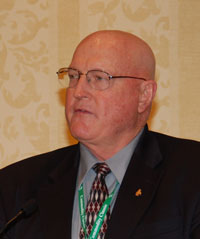Posted By Mark June 2, 2010
 If you haven’t already tuned into the new level of activism in agriculture, especially regarding misinformation on our largest industry, then you won’t find better evidence of this evolving cultural phenomenon than the Corn Farmers Coalition.
If you haven’t already tuned into the new level of activism in agriculture, especially regarding misinformation on our largest industry, then you won’t find better evidence of this evolving cultural phenomenon than the Corn Farmers Coalition.
Speaking to a couple of family farmers recently they expressed their frustration at the misinformation, innuendo and outright fabrications that are being used to frame their chosen profession. As upset as they were, there was also a prevalent sense that there was nothing they could do to change things.
If you are frustrated and tired of all the attacks and negative news swirling around agriculture you have come to the right place. Read slowly, soak this up, and then if you are a corn farmer give yourself a big pat on the back.
Imagine 60,000 city people getting a positive message about farmers every day. As they go to and from work, go out for dinner, go to a movie, or just go about their life in general. Next imagine that most of these people are employed in jobs on or near Capitol Hill in Washington, DC…Congressmen, staffers, agency employees, lobbyists, environmental groups, and even media. That’s what is happening right now as you read this thanks to the efforts of farmers themselves.
In the attached photo of the Union Station Metro stop in Washington, DC you can see several of the ads that will be prevalent throughout June and July as part of CFC’s efforts. From the highly trafficked Metro system, to Reagan National Airport, to the most widely read political publications like Politico and Congressional Quarterly. Throw in on-line advertising at the aforementioned publications, WashingtonPost.com, National Public Radio, ads in the Washington Nationals baseball team programs, and a smattering of talk, sports, and contemporary radio and you begin to get a feel for the breadth and scope of this campaign. It is conservatively estimated the educational campaign will create more than 10 million positive impressions in the land of policy and regulation.
Equally as impressive is that CFC, and the $1 million in corn checkoff funds backing the campaign, comes straight from family farmers in Maryland, Virginia, Ohio, Kentucky, Indiana, Illinois, Missouri, Iowa, Wisconsin, South Dakota, Nebraska, Colorado, Kansas and Michigan who believe we need to introduce a foundation of facts to the dialogue in Washington.
Ten messages based on USDA and EPA facts will be used in the campaign to show tech-savvy, innovative farmers are growing more corn every year - for food, animal feed, ethanol and exports - while using fewer resources and protecting the environment.
The coalition will meet with media, members of Congress, environmental groups and others to talk about what’s ahead: how U.S. farmers, using the latest technologies, will continue to expand yields and how this productivity can be a bright spot in an otherwise struggling economy.
We have a great story to tell so take heart. You can make a difference and CFC offers clear evidence.
Posted By Mark April 7, 2010

By Rick Tolman
CEO, National Corn Growers Association
An old saying states that you can tell the measure of someone by the company they keep. In that regard, the American Meat Institute is keeping some rather curious company these days as it wages war on an imagined enemy, the corn ethanol industry. AMI recently signed onto political letters and advertisements with environmental extremists like Friends of the Earth, the Natural Resources Defense Council and the Environmental Working Group that they should avoid at all costs. These three organizations have all attacked animal agriculture with the same level of rhetoric as PETA or the Humane Society.
As the self-proclaimed representative of the “companies that process 95 percent of red meat and 70 percent of turkey in the U.S. and their suppliers throughout America,” AMI really should avoid such curious connections.
I recently asked someone very familiar with the membership of AMI – companies like Tyson’s, Smithfield and Hormel – to help me understand the logic that would persuade AMI to take these actions. He laughed and said, “You have to realize, these are companies whose business is ‘blood on the floor,’ and all that they can see is short-term.”
Fortunately, most of the rest of agriculture is trying to take a long-term view and has realized that it is high time to put petty differences aside and agree to disagree on certain issues – like ethanol policy, with the realization that we all have much greater battles to fight with those outside of agriculture who are threatening to undermine the very fabric and structure that has made us the most successful and productive sector in the U.S. economy.
Among the challenges common to row-crop and animal agriculture are the following:
- The Humane Society of the United States, whose goal is to completely change the structure of animal agriculture in the United States. If successful, it would result in a significant increase in the cost of meat produced here, drive much of our meat production out of the U.S. and undermine much of the demand base for row crop agriculture. AMI should be solidly opposed to HSUS and be an active part of the groups that are working to oppose HSUS. Instead, they are embracing Friends of the Earth, a solid ally of HSUS and a cohort in HSUS efforts.
- Indirect land use change. AMI signed on to letters supporting the application of this mythological impact of biofuels. In EPA and California Air Resource Board modeling, that single theory changed domestic ethanol and biodiesel from being advanced biofuels to being worse in greenhouse gas measures than gasoline. If that sticks, where will that put the carbon footprint of the domestic livestock industry – the single-largest user of U.S. corn and soybeans?
- Commodity prices. Seemingly the reason AMI has formed its unholy coalition is to make more corn and soybeans available and at a cheaper price, for the livestock industry and eliminate the competition for such by the ethanol industry. Yet AMI’s “allies” in this fight roundly condemn corn and soybean production as environmentally unfriendly. An NRDC representative, in recent Congressional testimony, suggested that we grow “too much” corn in the United States and we ought to be growing less. NRDC also has promoted eating “grass-fed” over “corn-fed” beef.
- House Ag Committee Chairman Collin Peterson. Regardless of political affiliation, few of us in agriculture can help but be grateful for congressional leadership like that of Rep. Peterson. Apparently AMI is one of those few. Their friend and ally, Friends of Earth, last month named Chairman Peterson their 2010 “Biofool of the Year.”
AMI’s high-profile, expensive media and ad campaign is nothing but classic short-term thinking and “blood on the floor” mentality. What is to gain in the short-run by embracing the very people who are out to put you out of business? Their recent ad spawned an editorial in the Washington Times this week titled “Stop Big Corn.” Just as emotional labels like “factory farming” and “corporate farms” are unfortunate, inaccurate and misleading, with more than nine out of 10 farms being family-run, so are labels like “Big Corn.”
The American Meat Institute is doing itself and its industry and all of agriculture a major disservice by engaging in these scorched-earth tactics and being a part of this unholy alliance. It’s time for some long-term thinking and for all of us in agriculture to work together and not split ourselves apart. There are plenty of folks doing a pretty good job of that – they don’t need any help from AMI.
Posted By Cindy April 6, 2010
“A fool thinks himself to be wise, but a wise man knows himself to be a fool.”
- William Shakespeare
House Agriculture Committee chairman Collin Peterson of Minnesota has received a great honor - he was named the “Friends of the Earth Biofool of the Year.” The award was established by FOE “to recognize leaders that promote dirty biofuels” - especially corn ethanol.
Chairman Peterson should be very proud of this award, since he received almost 2,300 votes from FOE members and was the clear winner among five nominees - many of whom are very deserving, like Bob Dinneen, president and CEO of the Renewable Fuels Association. Hard to believe that he beat out the “Reverend of Renewables!” For a good laugh - watch the video of the FOEs going to present Peterson with the award. They even include a can of corn with the presentation - which has nothing to do with corn ethanol, of course.
Peterson won the award from FOE primarily because of his work to make the Waxman-Markey climate bill more favorable for agriculture and biofuels. According to FOE, Peterson’s Biofoolery includes, “demanding that the EPA stop factoring deforestation into environmental impact assessments of biofuels, trying to exempt dirty biofuels from key global warming standards, and trying to open forests and natural areas for biofuels exploitation.”
Congratulations to Chairman Peterson. We need more fools like that on the Hill!
Posted By Mark November 5, 2009
 The Environmental Protection Agency loves family farmers. Let me count the ways…ethanol, atrazine, carbofuran, water quality issue related to livestock operations…the list goes on. Like a drunken sailor on shore leave one of government’s most crucial agencies seems to be out of control and stumbling from one issue to the next with complete disregard for science, protocol or the future of our most important profession.
The Environmental Protection Agency loves family farmers. Let me count the ways…ethanol, atrazine, carbofuran, water quality issue related to livestock operations…the list goes on. Like a drunken sailor on shore leave one of government’s most crucial agencies seems to be out of control and stumbling from one issue to the next with complete disregard for science, protocol or the future of our most important profession.
From a bogus land use argument that could curtail future ethanol expansion to an ongoing review of atrazine, arguably the most widely studied and repeatedly exonerated chemical of all time, EPA has clearly lost its grip on its operational directive if not its mission.
The most recent example is EPA’s decision to move forward with banning carbofuran (Furadan), one of the few effective products against rootworm available on the market. (It also makes non-biotech corn production possible to service important overseas markets).
“EPA’s unprecedented attempt to deny any review of its science deprives the registrant and the growers who use carbofuran the right to prove that the product is safe, and represents a bold abuse of power in contradiction of the agency’s earlier commitments to transparency and good science,” said Dr. Michael Morelli, Director of Global Regulatory Affairs for FMC Corporation. (more…)
Posted By Mark September 17, 2009
 Leadership in agricultural advocacy is critical today, maybe more so than ever. So now would be a great time to join a farm organization. They provide a vehicle for education on critical issues, leadership training, and timely notifications on when you need to take targeted action. And if you haven’t gotten engaged online through Social Media, there won’t be a better time.
Leadership in agricultural advocacy is critical today, maybe more so than ever. So now would be a great time to join a farm organization. They provide a vehicle for education on critical issues, leadership training, and timely notifications on when you need to take targeted action. And if you haven’t gotten engaged online through Social Media, there won’t be a better time.
Since you have a critical job, like feeding and fueling the world, it is understandable that you have other things on your radar but there are things you can do besides sending a membership check that are equally important. Amazingly enough they do not take a lot of time but do more good than you know. Something as simple as an email to a Congressman or a text message to a Senator can affect serious change when it is in concert with like-minded growers across the U.S.
If you really want to tell consumers how and why you farm a computer or a cell phone can be your megaphone even in the busiest of times. Michele Payn-Knoper, who has deep Ag roots, says bluntly that Social Media “is Ag’s opportunity to reach a massive number of people” and even the right people. (check out her latest video message).
(more…)
Posted By Mark July 1, 2009
In ancient times messengers were treated with great respect because they were a vital lifeline regarding world events that could make or break your business or even your nation. Apparently times have changed.
Recently, DTN interviewed the increasingly infamous Michael Pollan, author of “The Omnivore’s Dilemma” who is also featured in the new documentary Food Inc., and the resulting article drew a considerable amount of attention and criticism from the Ag community.
So much so that Urban Lehner, Editor and Chief of DTN, felt compelled to write a column explaining why the Ag-Centered media outlet would provide a forum for such a food heretic.
In his own words, “When DTN writes about such people as Michael Pollan whose views are contrary to those of the majority of our readers, it isn’t because we think all their views are correct. It’s because we think such people have the power to shape the political environment in which agriculture will operate in the future.” Lehner said. “Pollan’s views certainly aren’t those of most Midwestern commercial farmers. Among other things, he sees corn as an agent of evil, responsible for much of what’s wrong with the modern American diet. But when those farmers call him an idiot they make the classic mistake of underestimating a formidable opponent.”
Lehner likened the running of Pollan’s comments to the same reason DTN weathermen predict stormy weather…forewarned is fore-armed. Having been exposed to Mr. Pollan’s message as well as its’ effect on consumers and more importantly on decision leaders in Washington, D.C., I can guarantee you the threat of his growing influence is real.
“The Omnivore’s Dilemma,” the New York Times best seller written by Pollan, is swallowed by many well-reasoned consumers as foodie gospel. DTN and Urban Lehner deserve the industry’s gratitude for alerting us to the hurricane on the horizon. His advice that farmers all should read his book is solid. If you don’t want to contribute to Mr. Pollan’s personal wealth buy a copy and share it with friends…lots of friends.
Posted By Mark June 19, 2009

No matter what your opinion of the Food Inc. documentary might be, my opinion of the latest social media tool – Twitter – took a huge leap to the positive side today. Twitter was atwitter today with one of the liveliest discussions on the Food. Inc. movie or agriculture in general that I have seen in a long time.
Some of the online comments were rude, many were funny or insightful, some were hopelessly naive, and all made you think at some level. And interestingly enough many from the agriculture community from the crop and livestock side were in the thick of the discussion….slow phone line speed and all. You are to be commended. It you aren’t on Twitter, get their quick…. www.twitter.com
Robert Kenner, Food Inc. Director, was featured and online to answer questions. (Long after Mr. Kenner left the discussion tweets continued…for 4 hours before I stopped keeping track) He may have created a questionable documentary and as one participant in the Twitter chat said today…”food and politics should never be served on the same plate,” but he deserves credit for putting himself out there in such a public forum. And at least this forum, unlike Good Morning America or the upcoming Nightline segment on his project, allowed both sides to be heard. For a movie reviewer’s perspective go to: http://bit.ly/14IocQ
If you don’t have time here it is in a nutshell:
“The side effect of a well-executed horror film is lack of sleep. The side effect of a well-executed documentary on corruption of our food supply is lack of appetite. Personally? I left “Food, Inc.,” went straight to lunch and had a big ole’ fried-chicken salad. Unfortunately for this film, one of the most valuable elements of education is learning to separate fact from bias and to seek proof in the form of evidence. “Food, Inc.” seems to cloud the presentation with a whole lot of bias and little proof.”
Now on to some jewels from today’s Twitter discussion:
I loved Variety’s review of Food Inc…it did for supermarkets what Jaws did for the beach.
How do you answer the need to feed a doubling or global population without utilizing any technology? Seems selfish to not look beyond the U.S.
Farmers are growing what they are paid for. We need to create a system where they can make money growing healthier foods.
Going back to how cattle used to be raised would require an added 16.5 million acres of land.
Gotta point this out moviemakers, Roundup soybeans are not insect resistant but herbicide tolerant.
I think we need diversity is Ag which means men and women, big and small, modern and old school. Room for all in Ag
Ag employs 21 million or 15% of the total U.S. workforce. The only entity employing more is government.
Posted By Cindy June 8, 2009
Debate over the irrational concept of indirect land use change (ILUC) continues to rage on Capitol Hill and in the media.
Dr. Robert Zubrin, author of Energy Victory, had a commentary last week in Roll Call that hit the nail on the head when it comes to the irrationality of ILUC. Zubrin writes, “Whatever one might think of the right of poor foreign countries to economic development, the indirect analysis method of carbon accounting must be rejected by American policymakers because, if it is embraced, it must perforce prevent the implementation of any positive policies here, not just in biofuel production, but in any field of endeavor whatsoever.”
Zubrin says if ILUC is applied to biofuels, it should also be applied to “all measures that improve the economy, education, health, the environment or technology.” Why? “Because all of these help humanity, and so long as humanity engages in any activities that cause carbon emissions, anything that helps humanity can also be said to cause global warming.” That is simply brilliant.
Meanwhile, Senate Agriculture Committee Chairman Tom Harkin, D-Iowa, said last week that he expects the controversial indirect land use change proposal for the renewable fuels standard will be removed in the final EPA rule.
“Quite frankly I can tell you we’ll never see it,” Harkin said. “With so many factors influencing land use in other nations, it’s impossible to show that biofuel crops are responsible. If the concept remains in EPA’s final rule, I’m relatively confident we have the votes to say no and overturn that.”
Finally, check out a Reuters commentary by Noam Ross last week on “Why the Ethanol Debate Isn’t Helping Anyone.” He points out, “The crux of the problem is not in how we measure the impact of ethanol, it is that developing world farmers clear and burn forests so they can plant more crops. Ethanol is just one of the pressures that speed the disastrous destruction of these forests.” Ross suggests that the ethanol industry become engaged in finding solutions “to reduce the pressure to clear land for agriculture by lobbying for global forest protection and working with partners in the agricultural industry to support technology transfer to the rural poor.”
This is what we need - a rational approach that involves helping the world produce food and fuel more efficiently and sustainably, instead of quibbling about how to measure something irrational.
Posted By Cindy February 26, 2009
The first Obama budget announced today would end direct payments for farms with large sales and incomes that receive a disproportionate amount of the payments, according to Agriculture Secretary Tom Vilsack speaking at USDA’s Annual Ag Outlook Forum. According to Office of Management and Budget Director Peter Orszag, the president is “proposing to phase out those payments over time for farms with revenue of more than $500,000 a year.”
 With that announcement coming out as the 2009 Commodity Classic was getting underway, it was the first question that came up during a press conference with National Corn Growers Association president Bob Dickey, a grower from Nebraska, who says they are very concerned about that statement but they need to examine the proposal closer.
With that announcement coming out as the 2009 Commodity Classic was getting underway, it was the first question that came up during a press conference with National Corn Growers Association president Bob Dickey, a grower from Nebraska, who says they are very concerned about that statement but they need to examine the proposal closer.
“I can tell you that we will take a strong stand to defend out corn producers,” Dickey said. “We do have policy on that and we will defend our policy.”
The budget would also support the implementation of a 250-thousand dollar commodity program payment limit and reduce crop insurance subsidies.
On the plus side, Obama’s 3.55 trillion dollar budget for fiscal year 2010 would provide over 20-billion dollars in loans and grants to support and expand rural development activities and make investments to double the nation’s renewable energy capacity.
Posted By Cindy January 7, 2009
The Obama cabinet may well be one of the most Midwestern in recent memory.
Five out of 15, or one third of the cabinet-level nominations made by the president-elect are from the Corn Belt. They include former Governor Tom Vilsack of Iowa as Secretary of Agriculture, former Senator Tom Daschle of South Dakota as Secretary for Health and Human Services, Representative Ray LaHood of Illinois for Secretary of Transportation and Arne Duncan of Illinois for Education Secretary. Obama is also keeping Robert Gates of Kansas as Secretary of Defense.
There are other high-level appointments from the Midwest and overall the corn growers are happy to have strong representation from the largest corn producing states in the new administration.
 If you haven’t already tuned into the new level of activism in agriculture, especially regarding misinformation on our largest industry, then you won’t find better evidence of this evolving cultural phenomenon than the Corn Farmers Coalition.
If you haven’t already tuned into the new level of activism in agriculture, especially regarding misinformation on our largest industry, then you won’t find better evidence of this evolving cultural phenomenon than the Corn Farmers Coalition.


 The Environmental Protection Agency loves family farmers. Let me count the ways…ethanol, atrazine, carbofuran, water quality issue related to livestock operations…the list goes on. Like a drunken sailor on shore leave one of government’s most crucial agencies seems to be out of control and stumbling from one issue to the next with complete disregard for science, protocol or the future of our most important profession.
The Environmental Protection Agency loves family farmers. Let me count the ways…ethanol, atrazine, carbofuran, water quality issue related to livestock operations…the list goes on. Like a drunken sailor on shore leave one of government’s most crucial agencies seems to be out of control and stumbling from one issue to the next with complete disregard for science, protocol or the future of our most important profession. Leadership in agricultural advocacy is critical today, maybe more so than ever. So now would be a great time to
Leadership in agricultural advocacy is critical today, maybe more so than ever. So now would be a great time to 
 With that announcement coming out as the 2009 Commodity Classic was getting underway, it was the first question that came up during a press conference with National Corn Growers Association president Bob Dickey, a grower from Nebraska, who says they are very concerned about that statement but they need to examine the proposal closer.
With that announcement coming out as the 2009 Commodity Classic was getting underway, it was the first question that came up during a press conference with National Corn Growers Association president Bob Dickey, a grower from Nebraska, who says they are very concerned about that statement but they need to examine the proposal closer.